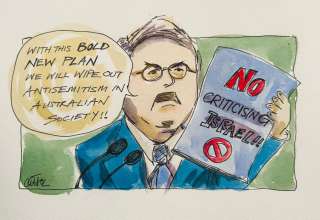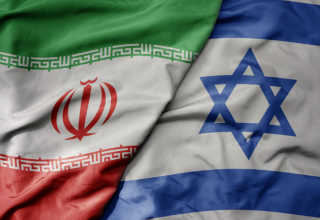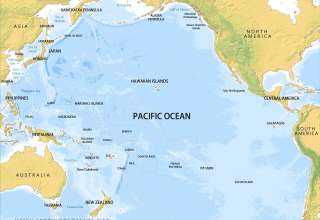The following is the text of a leaflet distributed by Spirit of Eureka members on September 21, International Day of Peace.
 Spirit of Eureka strongly condemns the US-led naval incursion in the Strait of Hormuz. We call upon the Australian Government to refrain from increasing military tension by cancelling the sending of Australian warship and troops to the region.
Spirit of Eureka strongly condemns the US-led naval incursion in the Strait of Hormuz. We call upon the Australian Government to refrain from increasing military tension by cancelling the sending of Australian warship and troops to the region.
US officials and their subservient counterparts in the UK, Australia and elsewhere, have claimed the need to defend ‘navigational freedom’ and to ‘de-escalate’ rising tensions in the region.
However there is a clear desire on the part of the United States to pursue an increasingly aggressive and undiplomatic policy towards Iran, after withdrawing from a major non-proliferation agreement and reinstating harsh sanctions aimed at crippling the economy of the Middle Eastern nation. This is a dangerous escalation with the potential to ignite a direct military conflict, possibly involving multiple countries.
Members of the Trump administration have been eager to blame Iran for the unfolding crisis in the Strait of Hormuz following a series of mysterious attacks against a number of oil-tankers in the region earlier this year. The allegations came despite the lack of an official investigation and without substantial evidence linking Iran to the crimes.
More recently, Iran has been blamed for drone attacks on Saudi oilfields, again without any evidence. Iranian officials also subsequently denied any responsibility for any of these attacks.
We need to ask “who benefits?” from this situation, apart from the multinational oil monopolies, as soaring oil prices reap monstrous profits!
Tensions continued to flare in July when British Royal Marines assisted in the seizure of an Iranian oil-tanker off the coast of Gibraltar on the grounds that it was suspected of travelling to Syria in violation of EU sanctions, an again unsubstantiated claim which has been denied by Iranian officials.
Weeks after this incident, a UK-flagged oil-tanker, the Stena Impero, was involved in a collision with an Iranian fishing vessel after suddenly changing its course and travelling in the wrong direction through a shipping lane in the Straits of Hormuz. Requests by local maritime authorities that the oil-tanker alter its course were ignored, as were subsequent requests to comply with standard protocols following the collision. Because of this refusal to co-operate with international maritime conventions, the oil-tanker was subsequently boarded by Iranian forces and taken into custody.
Following these developments Washington launched an appeal to its allies to join a ‘coalition of the willing’ to intervene in the region militarily. The response from other nations has been tentative, with even those countries to have obliged feeling the need to make reservations about their commitment to the operation, including Australia. Such a response indicates perhaps a growing scepticism among many world leaders toward US foreign policy and an acknowledgement of the potential dangers of further military intervention in the Middle East. With the recent departure from office of John Bolton, the United States’ now former National Security Advisor, who was a key figure in the 2003 invasion of Iraq and who remains an outspoken advocate for regime change in Iran, there were hopes that the US would soften its approach towards Iran.
However, with the decision to deploy military personnel to the region having already gone ahead, the pretext for further destabilisation, possibly culminating in a full-scale conflict, has been firmly established.
The departure of one neoconservative hawk from the Trump administration is nowhere near sufficient to curb the influence of multi-billion dollar oil-companies and their financial backers from the workings of the American political system.
Recent provocations against Iran, including harsh sanctions against its state-owned oil company, are part of an aggressive campaign to control the flow of Iranian oil to the world market, keeping prices and profits high, and staving off a crash in the oil-market. Iranian officials, including Foreign Affairs Minister Mohammed Javad Zarif, have referred to the sanctions as a form of ‘economic terrorism’.
The current situation with Iran echoes recent provocations directed at Venezuela, another country with a nationalised oil-industry, which also found itself subject to harsh sanctions and facing calls for regime change in a desperate contrivance by the United States to prevent cheap Venezuelan oil from flooding the world market.
For how long can we be expected to accompany the United States in its unending pursuit of conquest and destruction merely to secure markets and profit for a privileged corporate elite? We call for an independent and peaceful Australian foreign policy that promotes peace and respects the sovereignty of countries.
Oppose imperialist aggression against Iran!
Independence for Australia from all big powers!






